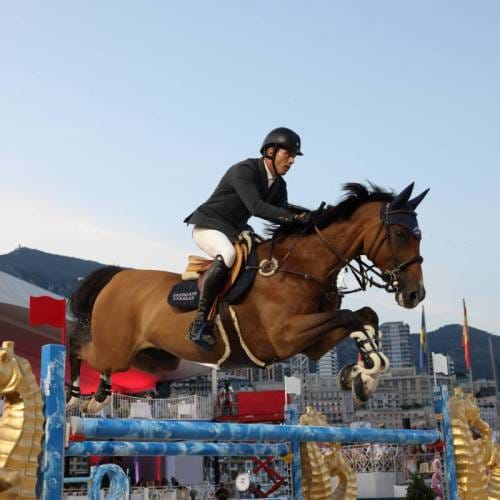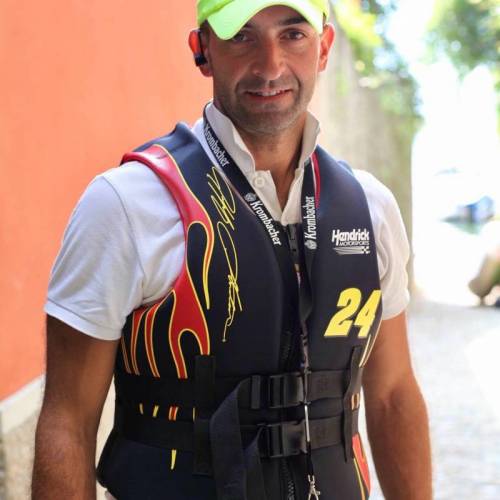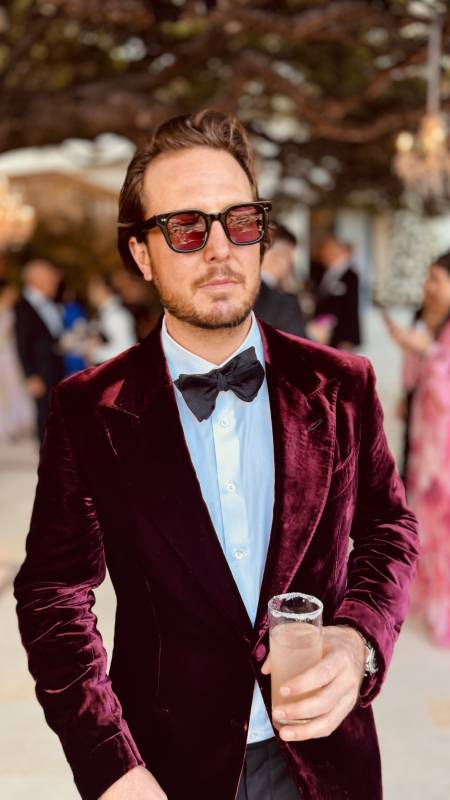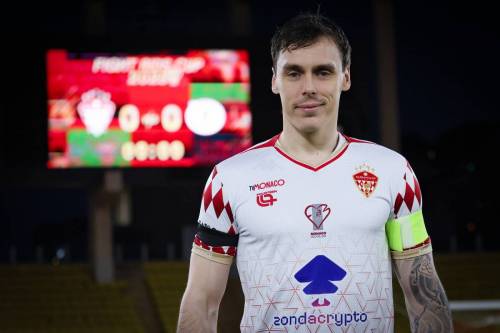Born on the 15th August 1994 in Monaco, he is a skilled Monegasque skiff rower who has already achieved considerable goals, being enrolled in the well-known Société Nautique de Monaco (Monaco Nautical Society) for a long time.
He started rowing on Monaco’s sea at the age of fourteen with some friends. He competed for the first time on the occasion of the Piediluco Students National Day held in Umbria (Italy). Three years later, he had the chance to meet top-ranked coaches in Rowing who implemented his sport performance.
In 2008, he reached the second position in the 2X in Varese (Italy) with his teammate Federico Garibaldi.
In 2010, he won competing together with Raffaele Daniele in the France Championship.
In 2012 he won, together with Pierre Houin (Olympic champion in 2016), the Junior Men Double Sculls B Final during day five of the FISA Rowing World Senior & Junior Championship in Plovdiv (Bulgaria).
In 2011, he represented Monaco’s flag at the Eton Junior Championships, for his first time.
In 2013, he took part for the first time to Pôle France Aviron in Lyon. The same year he had the chance to row with Mathias Raymond (Monaco’s Olympic Rower). In 2018, he joined for the first time the prestigious Oxford Brookes University.
He tried to qualify for the Olympics in 2016. He has just represented the Principality of Monaco at the 2020 Olympic Games in Tokyo (23rd July – 8th August 2021) followed by Daniel Fauchet, his personal trainer, and Mathias Raymond, president of Monaco Nautical Society.
His father, Jean-Louis Antognelli is President of the Fédération Monégasque du Sport Aviron (Monaco Rowing Federation) and Vice-President of the Société Nautique de Monaco.
HelloMonaco: What did it feel like for you when you have been invited to attend Tokyo Olympic Games?
C.B.: Actually, I was not completely sure to be part of the Olympics. In mid-April, I failed the qualifying regatta, but I didn’t give up following a parallel project with the University I attend, that is the Henley Royal Regatta on the river Thames. That was really a crucial chance for me, and I have completely focused on the goal, making a tough training. Then, Mrs. Yvette Lambin-Berti (Representative of the Monegasque Olympic Committee) called me. At the very beginning I was more surprised than happy.
I didn’t know how to react because I didn’t expect it, being the first time I was invited to participate to Olympics, not on a team. As soon as I started spreading the piece of news to people, I knew everyone was super happy. After about two days I began to realize what was happening to me and joy prevailed with just a bit of stress in trying to organize everything to get ready to the Olympic Games at its best, balancing sport preparation with academic studies within the Business Management Masters at Oxford Brookes University.
HelloMonaco: Are you satisfied with your results?
C.B.: Yes, absolutely. I had set myself a primary and a secondary target. The first was to enter among the finalists that was not for granted despite I knew most opponents usually competing in world championships. Getting the result, among the first twenty-four classified, was a great thing as reaching the Final C, my second objective, classifying at the 15th position. That was something!
HelloMonaco: The Tokyo Olympics were held without public and you did not have the chance to support your colleagues and being supported by the audience. Did you miss it?
C.B.: Not particularly since rowing involves having the audience at a distance unlike many collective sports. We, athletes, are always focused on the sport test and we do not notice much the presence of supporters. The main mission is always to ‘survive’ the challenge. Surely at the opening ceremony, perhaps, we wouldn’t have felt so much smaller compared to the size of the stadium if we had had the grandstands full of spectators. It was still a huge emotion.
HelloMonaco: Did the presence of Prince Albert II of Monaco helped you in bringing the spirit up?
Q.A.: His attendance was really appreciated. He had been encouraging and supporting me all the time, visiting twice the Olympic rowing basin. Furthermore, I received thousands of messages from Monaco, encouraging me. I could also benefit from a pleasant atmosphere between me and the other five athletes. It was really a wonderful experience to getting to know the other sports and supporting each other. Although not having the chance to assist live to the challenges we could follow them on television.
HelloMonaco: How did you approach to rowing? What do you appreciate most of this sport?
C.B.: Having friends who were already attending the club helped me get closer to this sport. The desire to practice a sport both in solitary or in team is then intriguing for me. Finding yourself in the middle of a lake in winter where you hear only the sound of the skiff on the calm water is truly fulfilling. At the same time, when you are rowing in four or eight you can really feel the sense of a team where each brings something to the other for the best result without particularisms. For these reasons I think it is a truly unique sport.

HelloMonaco: What competences do you need to practice rowing? Are there values on which it is based?
C.B.: To succeed well in this sport you need a lot of strength and endurance. A rowing race is a bit like lifting on your shoulders a potato sack of 50 kilos, trying to hold out for seven minutes. It is therefore not for all bring a quite intense challenge. Nevertheless, rowing is deeply inspired by Olympic values like mutual respect and comradeship even among opponent teams. I have never heard complaints or quarrels between us. This is another side of this sport that I love very much. Personally, I constantly train myself on a daily base for about fifteen sessions per week both on the water and in the gym following a specific training cycle. For the Olympics I focused on the river rowing, the only discipline officially recognized by the Olympic Committee, even though sea rowing amuses me a lot since you have to consider many additional variables as the wind, the waves and the sea streams. This definitely helps to be even more performing on rivers and lakes.
HelloMonaco: How Covid-19 restrictions influenced you within the training and your attendance to the Olympic Games?
C.B.: I started the 2019-2020 season in the best way. I had just completed a winter training in Bagnoles (Normandy) and on my way back to England, things began to get worse and competitions to about three regattas were cancelled due to the health emergency, including the Henley Royal Regatta, the major event. Good vibes started to miss and some of my colleagues decided to quit the sport. We didn’t know how to train, we started then to do it at home, taking turns to use the two rowing machines available plus some cycling and jogging. I get used to all that until I restarted with a project in Monaco to join the French Championship. Hopefully, I could then train again seriously on board the skiff.
HelloMonaco: What are your plans for the future?
C.B.: In the very moment the experience in Tokyo was over I said to myself that I could not miss the next Olympic rendezvous in Paris in 2024. I am currently finishing my Master at Oxford Brookes, then I will be training more and more on skiff in the next three years to achieve the best outcome, better than Tokyo. Meanwhile, I would like to attend the World Championship and the World Cup as well as the Sea Rowing Challenge here in Monaco.









